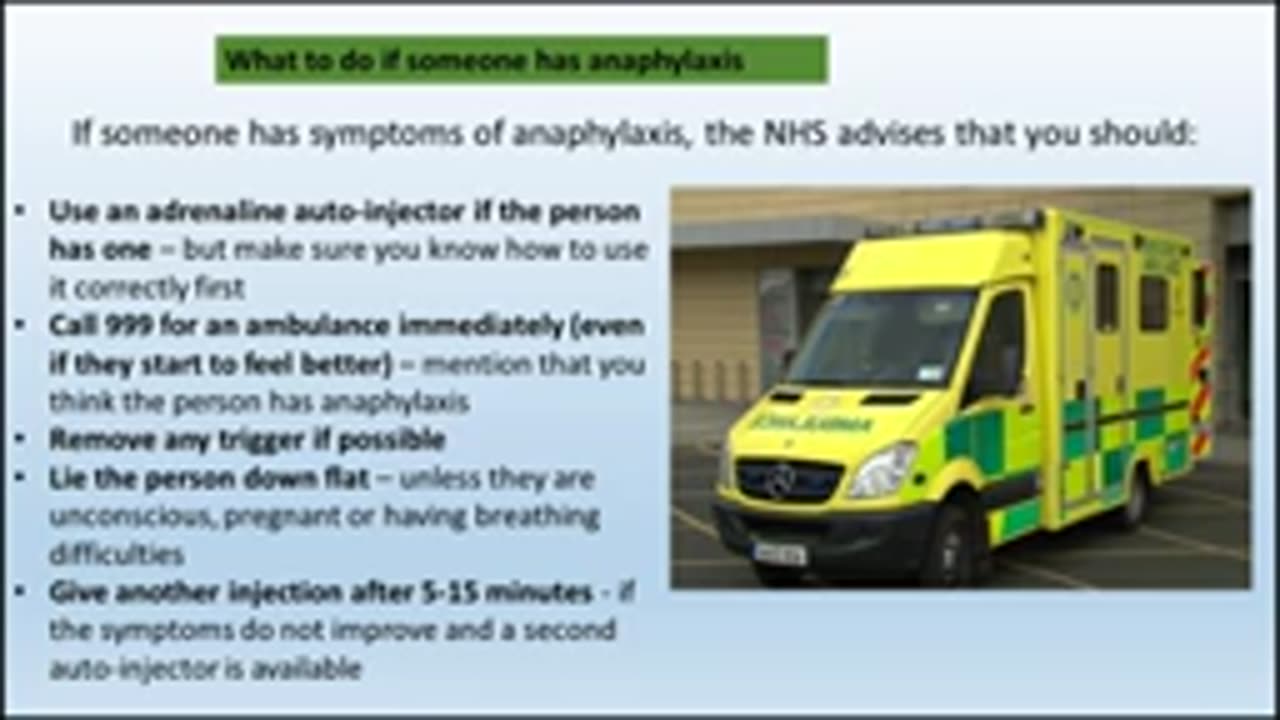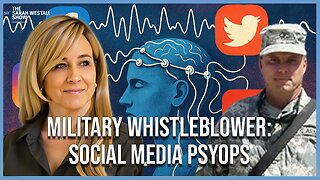Premium Only Content

Accredited Food Allergy Course Level 2 (MODULE 1)
The **Accredited Food Allergy Course Level 2 (Module 1)** typically serves as an introduction to **food allergies, their importance in food service, and the risks involved**. Below is an outline of what Module 1 generally covers:
---
### **Module 1: Introduction to Food Allergies**
---
### **1. Overview of Food Allergies**
- **What Are Food Allergies?**
- Definition: A food allergy is an immune system response to a protein in food that the body mistakenly identifies as harmful.
- How it differs from food intolerances and sensitivities.
- **Why Are Food Allergies Important?**
- Increasing prevalence of food allergies globally.
- Serious health risks, including life-threatening anaphylaxis.
---
### **2. The Role of Food Service in Managing Allergies**
- Importance of food handlers and businesses in ensuring customer safety.
- Potential risks in food service:
- Cross-contact between allergenic and non-allergenic foods.
- Lack of communication between staff and customers.
---
### **3. Common Food Allergens**
- Introduction to the major food allergens based on regulations:
- **EU (14 Allergens)**: Milk, eggs, peanuts, tree nuts, soy, sesame, cereals containing gluten, fish, crustaceans, mollusks, celery, mustard, lupin, and sulfur dioxide/sulfites.
- **U.S. (Big 9 Allergens)**: Milk, eggs, peanuts, tree nuts, wheat, soy, fish, shellfish, and sesame.
---
### **4. The Consequences of Poor Allergen Management**
- **Health Impacts on Customers**:
- Mild reactions: Hives, nausea, or vomiting.
- Severe reactions: Difficulty breathing, anaphylaxis, or death.
- **Impact on Food Businesses**:
- Loss of customer trust.
- Legal penalties and fines.
- Potential closure due to non-compliance with food safety regulations.
---
### **5. Legal Requirements and Responsibilities**
- An introduction to laws and regulations surrounding allergen management, such as:
- **EU FIC Regulations**: Clear labeling of allergens in pre-packaged and non-prepackaged foods.
- **FDA FALCPA (U.S.)**: Allergen labeling requirements for packaged foods.
- Importance of staff training to meet legal obligations.
---
### **6. Importance of Training and Awareness**
- Why all food handlers must understand food allergies and their risks:
- Reducing cross-contamination.
- Proper communication with customers about allergens.
- Knowing how to respond in case of an allergic reaction.
---
### **7. Goals of the Course**
- To build a foundation of knowledge about food allergies.
- To emphasize the importance of proactive allergen management in food service.
- To prepare participants for practical modules on allergen handling and customer safety.
---
### **Learning Objectives for Module 1**
- Understand what food allergies are and why they are important.
- Identify common food allergens and the risks they pose.
- Recognize the consequences of poor allergen management.
- Appreciate the legal and ethical responsibilities of food service businesses.
---
Module 1 sets the stage for deeper dives into allergen handling, labeling, prevention of cross-contact, and emergency response in later modules.
-
 6:43
6:43
HSESafetyInformation
6 months agoLahori Chanay Recipe - Lahori Cholay Recipe - Chana Chana Masala
55 -
 LIVE
LIVE
Sarah Westall
1 hour agoMILITARY WHISTLEBLOWER: How Social Media Military Level Psyops are Manipulating You w/ Patrick Bergy
180 watching -
 9:39
9:39
MattMorseTV
2 hours ago $0.02 earnedVance just DROPPED a BOMBSHELL.
77919 -
 1:47:49
1:47:49
Jeff Ahern
2 hours ago $0.23 earnedThe Sunday Show!
78.9K4 -
 LIVE
LIVE
Spartan
1 hour agoExpedition 33, Halo Later on (Maybe)
138 watching -
 LIVE
LIVE
Meisters of Madness
43 minutes agoFinals and Wuchang!
40 watching -
 LIVE
LIVE
Lofi Girl
2 years agoSynthwave Radio 🌌 - beats to chill/game to
282 watching -
 LIVE
LIVE
BBQPenguin_
2 hours agoTasking & PVP
43 watching -
 LIVE
LIVE
FrizzleMcDizzle
3 hours agoGladius, Creature of the Night - NEW NIGHTLORD - NightReign
36 watching -
 8:31
8:31
MattMorseTV
1 day ago $1.61 earnedTexas just did the IMPOSSIBLE.
64.1K90